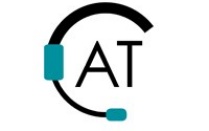Steps 5.1 through 5.5
To view supporting evidence, click on magnifying glass icons or hyperlink text.
Click on the toolbox icon to view tools related to each step.
Click on table icon to view subcategories of Freeware.
Step 5.1
Design and write code for series of preliminary (alpha) operational versions of Freeware software application to demonstrate proof of concept.
Key question to answer in Activity Stage 5: Can the utility of the Freeware be tangibly demonstrated through laboratory and field trials?
Step 5.2
Test alpha prototype models for usability, accessibility and efficacy under controlled lab conditions.
Perform in-house bench and lab testing according to established performance parameters.
Step 5.3
Test Alpha prototype models under controlled lab conditions, and according to established performance parameters.
Address barriers to Freeware software identification, assessment, access and use (e.g., specify utility distinct from similar applications).
Step 5.4
Document requirements for others to share, build and revise your code, including information about required development tools, frameworks, APIs and DevOps skill sets.
Providing an automated build mechanism (e.g., Make, Ant, Nant, Maven), allows others to validate their changes. See (http://www.software.ac.uk/).
Step 5.5
Confirm final design and specifications for Freeware software application. Prepare and submit any copyright registration claims.
IP claim allows use by others, while ensuring others cannot invoke competing claims to prevent your control over use. Weigh potential of restricted versus open source access for future expansion.
Decision Gate 5
Should the project continue and go to beta prototype testing? Determine if the beta prototype will solve the problem and is feasible to deploy in the marketplace. Does it demonstrate sufficient value — efficacy/effectiveness/economies — according to the preliminary assessments in Phase I? If yes, continue to Stage 6. If no, terminate or reiterate Stage 5.
Does Prototype Invention demonstrate sufficient value according to the preliminary assessments, SLOT analysis and justification? If yes, continue to III. Innovation Phase (Stage & Gate 6). If the decision is to not proceed, terminate project and apply KT principles.
Note: The NtK Model for Freeware contains Stages, Steps and Gates that may vary across the five sub-categories, as described in the five columns below.
| Freeware | Fee App | Freemium/>$5 | Free DIY | Fee DIY/Training |
|---|---|---|---|---|
| Oddly, sometimes not rigorously performed | Essential | Essential | Oddly, sometimes not rigorously performed | Essential |














